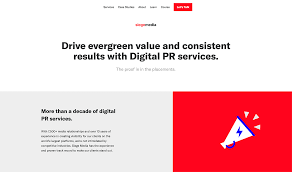Mastering the Art of Public Affairs: Navigating Today’s Complex Societal Landscape
The Importance of Public Affairs in Today’s Society
Public affairs play a crucial role in shaping the relationship between governments, businesses, and society. It involves the strategic management of an organization’s interactions with stakeholders to influence public policy and promote a positive image.
In today’s complex and interconnected world, public affairs have become more important than ever. With the rise of social media and instant communication, organizations are under constant scrutiny from the public and policymakers. Effective public affairs strategies are essential for managing reputation, building trust, and achieving business objectives.
Public affairs professionals work to engage with key stakeholders, including government officials, regulators, community groups, and the media. By understanding their concerns and priorities, organizations can tailor their messages and policies to address societal needs effectively.
Public affairs also play a vital role in advocacy efforts. By lobbying policymakers and influencing legislation, organizations can shape laws and regulations that impact their operations. This proactive approach allows companies to contribute to the development of policies that benefit both their interests and society as a whole.
Furthermore, public affairs help organisations navigate complex issues such as crisis management, corporate social responsibility, and sustainability. By engaging with stakeholders transparently and authentically, companies can build credibility and demonstrate their commitment to ethical practices.
In conclusion, public affairs are essential for organisations looking to thrive in today’s competitive landscape. By investing in effective public affairs strategies, businesses can build strong relationships with stakeholders, shape public policy outcomes, and enhance their reputation in society.
Six Essential Tips for Navigating and Influencing Public Affairs
- Stay informed about current events and public policy issues.
- Engage with your local community by attending town hall meetings or joining local organisations.
- Develop strong communication and networking skills to effectively advocate for causes you care about.
- Understand the political landscape and how decisions are made in your country’s government.
- Build relationships with key stakeholders, including government officials, community leaders, and advocacy groups.
- Be proactive in seeking opportunities to make a positive impact on public affairs through volunteering or activism.
Stay informed about current events and public policy issues.
Staying informed about current events and public policy issues is crucial in the field of public affairs. By keeping abreast of the latest developments, trends, and debates, professionals can better understand the context in which they operate and anticipate potential challenges and opportunities. This knowledge allows them to craft more effective strategies, engage with stakeholders more meaningfully, and position their organisations as informed and proactive contributors to the public discourse. In a rapidly changing world, staying informed is not just a recommendation but a necessity for success in navigating the complexities of public affairs.
Engage with your local community by attending town hall meetings or joining local organisations.
Engaging with your local community through activities such as attending town hall meetings or joining local organisations is a valuable tip in the realm of public affairs. By actively participating in these community events, you can gain a deeper understanding of the issues that matter most to residents and stakeholders. This direct engagement provides an opportunity to build relationships, listen to concerns, and contribute to discussions that can positively impact both the community and your organisation. Such involvement demonstrates a commitment to being a responsible and responsive member of the local community, fostering trust and goodwill that can enhance your organisation’s reputation and influence in public affairs initiatives.
Develop strong communication and networking skills to effectively advocate for causes you care about.
Developing strong communication and networking skills is crucial in the realm of public affairs, especially when advocating for causes close to your heart. By honing these skills, you can effectively convey your message, engage with key stakeholders, and build meaningful relationships that support your advocacy efforts. Clear and persuasive communication enables you to articulate your beliefs and rally support for important causes, while effective networking allows you to connect with like-minded individuals and organisations to amplify your impact. Investing in these skills empowers you to be a more influential advocate and drive positive change in the issues that matter most to you.
Understand the political landscape and how decisions are made in your country’s government.
To succeed in public affairs, it is crucial to have a deep understanding of the political landscape and decision-making processes within your country’s government. By comprehensively grasping the intricacies of policymaking, key stakeholders, and regulatory frameworks, organisations can strategically navigate the political terrain to effectively advocate for their interests and influence policy outcomes. This knowledge empowers public affairs professionals to tailor their strategies and messages in alignment with the prevailing political dynamics, ultimately enhancing their ability to engage with policymakers and shape impactful decisions that benefit both their organisation and society at large.
Build relationships with key stakeholders, including government officials, community leaders, and advocacy groups.
Building relationships with key stakeholders, such as government officials, community leaders, and advocacy groups, is a fundamental tip in public affairs. By establishing strong connections with these influential parties, organisations can gain valuable insights, collaborate on common goals, and effectively communicate their messages to a wider audience. These relationships not only help in shaping public policy decisions but also in fostering trust and credibility within the community. Engaging with key stakeholders allows organisations to navigate complex issues more effectively and build a solid foundation for long-term success in the dynamic landscape of public affairs.
Be proactive in seeking opportunities to make a positive impact on public affairs through volunteering or activism.
Being proactive in seeking opportunities to make a positive impact on public affairs through volunteering or activism is a powerful way to engage with the community and contribute to meaningful change. By actively participating in initiatives that align with your values and beliefs, you can help shape policies, raise awareness on important issues, and advocate for positive social outcomes. Volunteering and activism not only benefit the causes you support but also demonstrate your commitment to being a responsible and engaged citizen in shaping a better society for all.






